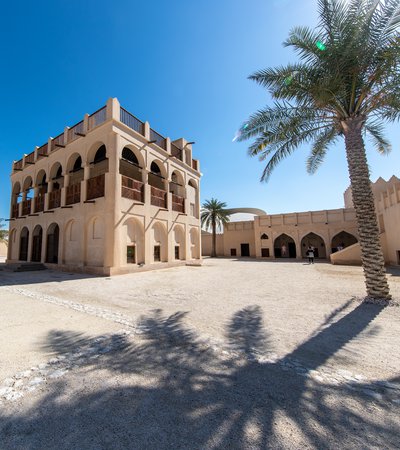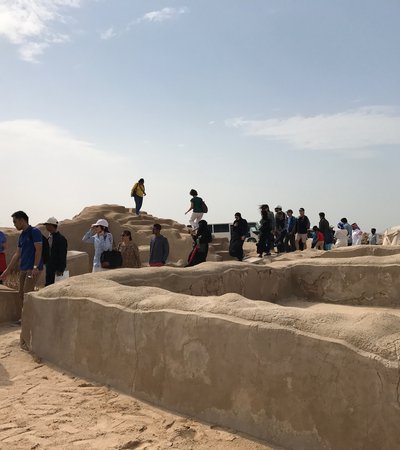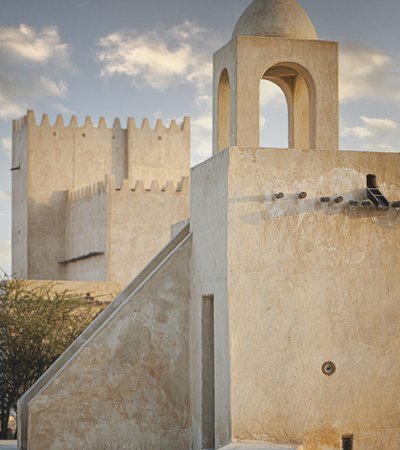Giving New Life
Our architectural conservation team rehabilitates, repairs and rejuvenates historic buildings in the north of Qatar, in Al Shamal, Al Ruwais and Abu Dhelouf. Its mission is simple – make them accessible to the public. We’ve recently carried out restoration and rehabilitation works at Abu Dhelouf Mosque and Al Ruwais Police Station.
We have restored mosques in Al Wakra, Sumaisma and Dukhan; palaces in Al Wajba and Al Shamal and the village of Al Mufair. We’ve also worked on a number of significant houses around the country, including Sheikh Abdullah bin Jassim Al Thani's old house; the Al Nejada Houses made from stones and mud, where Persian workers resided; and the house of Sheikh Ghanim bin Abdulrahman Al Thani, a landmark on Al Wakrah beach.
Preserving Old Mosques
We are currently carrying out investigative and restoration activities at Al Ruwais Mosque, the oldest in Qatar. Al Ruwais is one of the oldest harbour towns in the north of the country. Its mosque was built in the 1940s on the ruins of an older one, thought to be from the 17th century.
After the 1970s, the mosque was abandoned in favour of modern replacements equipped with air-conditioning and other facilities. As a result, the neglected building suffered from harsh weather conditions and damage to its foundations. Our team intervened in order to rescue the character and authenticity of the old landmark, its restoration including several phases – strengthening the walls, removing collapsed sections, and monitoring structural cracks and fissures. We have also planned subsequent studies, such as an analysis of the soil and foundations to prevent the negative impact of seawater on the mosque’s foundations and walls.
Also included are the essential amenities for our visitors, a car park and pedestrian footpaths.
More To Come
To further our impact, we have proposed many more restoration projects around Qatar and have several more in progress or planned. These include Al Kholaifi House at the Doha Corniche and the mosques Al Khoulifat and Bin Washakh. We hope these spaces will be accessible for future generations, inspiring them to explore ancient civilisation in the midst of modern life.



